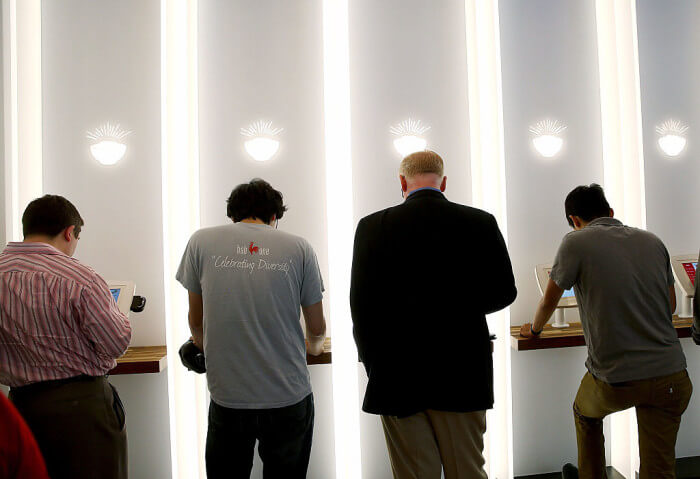With the April 1 budget vote looming, talk of a $15 minimum wage has swept New York state once again.
While some claim that the gradual wage hikes would increase productivity and overall economic well-being, others fear that a $15 minimum wage would put small businesses at risk of foreclosure while increasing automation across industries.
This has led to an entrenched cold war between senate Republicans and Gov. Andrew Cuomo’s supporters, with former Senate majority leader Dean Skelos’ open senate seat adding fuel to an already stoked fire.
Republicans have been trying to block Gov. Cuomo’s proposal indefinitely, claiming it’s a “populist ploy rather than a valid policy,” while the Democratic-controlled Assembly continues to back Cuomo.
A fair wage for fair work
Political vitriol aside, paying everyone a fair wage for an honest day’s work is a respectable sentiment that comes from a place of much-needed empathy.
In the last decade, the cost of everything has risen – with wages being the glaring exception. The frustration felt by America’s minimum wage workers is universal, not to mention warranted.
Proponents of the hike argue that in large, expensive cities like New York and San Francisco, a $15 minimum wage would merely see workers a living wage in which they would (hopefully) no longer have to choose between paying rent and buying food.
New findings from the Institute for Research on Labor and Employment (IRLE) suggest that a $15 minimum wage in New York would have no influence on job loss, mainly because the “boost to businesses from workers’ greater purchasing power would be greater than the drag from having to pay workers more.”
The fifteen-dollar fall out
While a $15 minimum wage seems beneficial in theory, it could have disastrous consequences in practice.
An arbitrary minimum wage does not take into account geographic differences that prove crucial for both employers and employees. For example, the cost of living is significantly higher in New York City than a rural town upstate, yet they’d both face the same regulation. This could be disastrous for a business that simply cannot afford to create city wages when it cannot charge city prices to compensate.
Further, the legislation would only incentivize companies to automate as many jobs as possible. It’s still early in what will prove to be a seismic shift in labor practices, but it is already possible to replace a cashier with an iPad or a kiosk. The jobs of roughly eight million fast-food workers nationwide will be under serious threat if their wages are arbitrarily raised.
“I think it will be devastating to the restaurant business,” said Sam Tornatore, owner of Babe’s Macaroni Grill and Bar in North Utica in an interview with local news outlet Utica Observer-Dispatch.
“We’ve lost many production and manufacturing jobs in New York state over the years, and now it seems like the farmers and the independent restaurants are going to take a big hit far beyond what they can handle.”
While the corporate employers are the intended target of the proposal, activists need to take into account the fact that small, mom-and-pop shops are the ones most susceptible to the negative side effects of a $15 minimum wage. Without the huge revenues and profit margins of booming corporations, these bite-sized companies could be forced to fire staff members or close up shop altogether as a result of wage hikes.
Our take
Unfortunately, the very people that the wage hike is intended to help could actually suffer from the market inefficiencies associated with minimum-wage hikes and the ability to shift to automated labor in our new economy.
Rather than paying workers more for jobs that are at high risk of automation and extinction, a real solution would be training them for the high-paying technical jobs of the future. By increasing their productivity for the long term, we can both save jobs and naturally cause wages to rise.
Have something to add to this story? Share below or join the discussion on Facebook.
Header image: Justin Sullivan / Getty









































